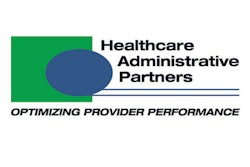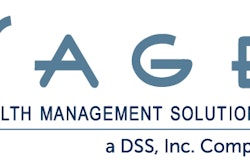
In recently proposed rules, the U.S. Centers for Medicare and Medicaid Services (CMS) said it would delay clinical decision-support requirements for advanced imaging studies until 2019. Early adopters, however, may benefit from a direct tie between the program and the Merit-Based Incentive Payment System (MIPS).
Under its proposed rule for the 2018 Medicare Physician Fee Schedule (MPFS), CMS said the requirement for ordering physicians to consult appropriate use criteria (AUC) using a qualified clinical decision-support mechanism (CDSM) will be pushed back from January 1, 2018, to January 1, 2019. What's more, the initial year of 2019 will be an "educational and testing year," during which radiologists will continue to receive full reimbursement regardless of whether their claims contain the information about the required AUC consultation. A voluntary reporting period is expected to be available beginning around July 2018 that will allow practices to test their systems and become familiar with the operation of the program.
CDSM
A CDSM is defined as an "interactive, electronic tool for use by clinicians that communicates AUC information to the user and assists them in making the most appropriate treatment decision for a patient's specific clinical condition." The CDSM tool can be an integral part of an existing electronic health record system or a standalone system, as long as it is certified by CMS as a qualified system. As expected, CMS has posted the list of qualified CDSMs on its website.
The current qualified CDSMs are as follows:
- Applied Pathways' Curion platform
- Cranberry Peak's ezCDS
- EviCore Healthcare's CDSM
- National Decision Support Company's CareSelect
- National Imaging Associates' RadMD
- Sage Health Management Solutions' RadWise
- Test Appropriate's CDSM
Nine additional CDSMs are listed as having "preliminary" qualification.
Claims reporting instructions
Radiologists will have to include certain information on their Medicare claim forms to let CMS know whether or not the requirements have been fulfilled. This includes the following:
- Which qualified CDSM was consulted by the ordering professional
- Whether the service ordered would or would not adhere to specified applicable AUC, or whether specified applicable AUC were not applicable to the service ordered
- The National Provider Identifier (NPI) of the ordering professional (if different from the furnishing professional)
CMS proposes to implement this reporting requirement using a series of G-codes that would describe the specific CDSM used by the ordering professional, with one code being defined for each CDSM and one for use with a newly qualified CDSM that has not yet been issued its own code. Another G-code will be used when no AUC consultation took place.
In addition to the G-codes, a series of modifiers will describe whether the imaging service ordered would adhere to the applicable AUC criteria, or if such criteria were not applicable to the imaging service ordered. Modifiers will also be developed to describe exceptions to the rules, such as for an emergency medical condition or a significant hardship, according to CMS.
A direct tie to MIPS
Published on June 30, the proposed rule for year 2 of the Quality Payment Program (QPP) establishes a direct tie between the Merit-Based Incentive Payment System and the AUC program under the MPFS. The QPP rule will give MIPS credit to ordering professionals for consulting AUC using a qualified CDSM beginning January 1, 2018. The Patient Safety and Practice Assessment subcategory of MIPS Improvement Activities for 2018 will include such consultation as a high-weighted activity for the Advancing Care Information (ACI) bonus.
As a reminder, the Medicare regulation for AUC and clinical decision support was enacted as part of the Protecting Access to Medicare Act (PAMA) of 2014. It mandates that ordering providers consult AUC when ordering advanced imaging examinations such as MR, CT, PET, and other nuclear medicine exams for Medicare patients. However, the burden of reporting the CDSM consultation is on the radiologist, whose payment will be denied in full when the ordering provider fails to use the system.
The denial of payment will apply to both the professional and technical components of the Medicare reimbursement, whether the procedure is billed separately or globally. This brings the interests of the radiology group and the hospital into alignment to jointly implement and develop a system with which ordering physicians must comply. There is no financial penalty to the ordering physician who does not consult and document the use of AUC.
The rule requiring consultation with AUC will apply for outpatient services whether in the hospital or the imaging center. The regulation does not cover inpatient services under Medicare Part A or services ordered for an individual with an "emergency medical condition" -- regardless of the location where those services are performed.
Carin Carlson is vice president of business development at Healthcare Administrative Partners (HAP), where she is responsible for all new business activity, including sales, marketing, product development, and strategic planning.
The comments and observations expressed herein are those of the author and do not necessarily reflect the opinions of AuntMinnie.com.



















